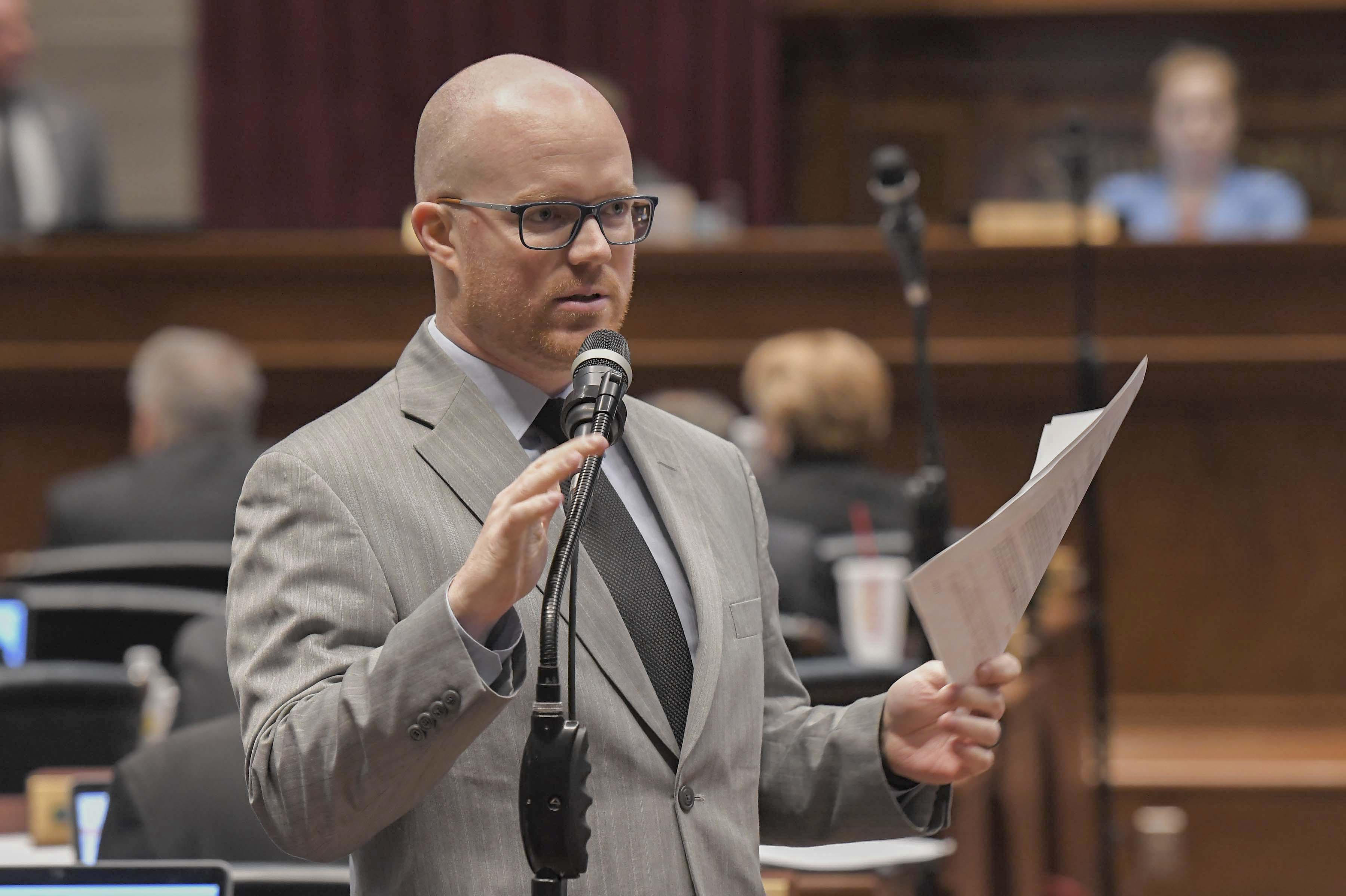JEFFERSON CITY, Mo. — Calling it a “labor of love,” Republican state Rep. Travis Fitzwater presented a resolution Monday to significantly reduce the size of the state House while adding to the Senate.
If approved as is by voters, the constitutional amendment would cut the number of state representatives to 120 from 163, yet increase the size of the state Senate by six lawmakers, bringing the total to 40. His proposal, HJR 41, would translate into three House districts within each Senate district and create a three-to-one ratio of House districts to Senate, according to the resolution’s text.
Fitzwater did acknowledge, however, that he isn’t “committed” to the exact numbers put forth in his resolution and would be open to other suggestions.
Touting the proposal before the General Laws Committee Monday afternoon, Fitzwater pointed to neighboring states, noting Missouri is an anomaly with such a high number of legislators in the state given its population. He also pushed back on claims the resolution is a “jobs-killing proposal” with a defense that it is “good government.”
“I very much want to move this forward. I want this to be a legitimate conversation [in] the broad House,” Fitzwater said.
Fitzwater said his plan would reduce costs within the state House but noted the Senate would see an increase with the addition of new lawmakers. According to a fiscal report attached to the resolution, the plan would save an estimated $3,613,591 for the House, whereas it could cost the Senate about $1,897,959.
Fitzwater said his plan could reduce up to $3 million per year in total costs to the state if implemented. He pointed out the fiscal note also included an estimated $7.8 million cost if a special election would be called to vote on the amendment which he does not support.
Fitzwater saw early support from Rep. Jon Carpenter, a Democrat, who said the proposal would reap benefits “in terms of the public’s engagement with the democratic process.”
“I think when you make it easier to understand, I think people are more likely to stay engaged,” Carpenter said.
Fitzwater’s resolution also includes a change to term limits — marking it at 16 years total by December 2020 — but he said he would be willing to amend or remove that provision completely.

Kaitlyn Schallhorn was the editor in chief of The Missouri Times from 2020-2022. She joined the newspaper in early 2019 after working as a reporter for Fox News in New York City.
Throughout her career, Kaitlyn has covered political campaigns across the U.S., including the 2016 presidential election, and humanitarian aid efforts in Africa and the Middle East.
She is a native of Missouri who studied journalism at Winthrop University in South Carolina. She is also an alumna of the National Journalism Center in Washington, D.C.
Contact Kaitlyn at kaitlyn@themissouritimes.com.








